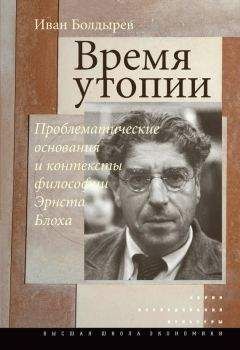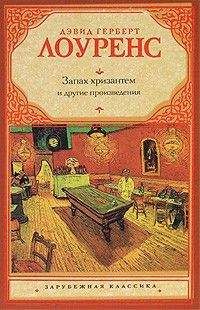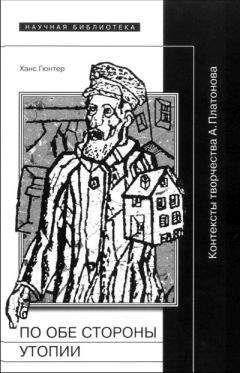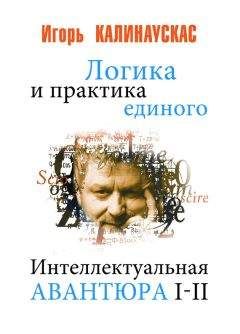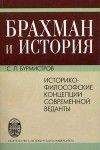Дэвид Лоуренс - Английский с Дэвидом Г. Лоуренсом. Тень в розовом саду / D. H. Lawrence. The Shadow in the Rose Garden
He knew somehow that she would like Sam Adams to see how pretty her legs looked in the white stockings. It made his anger go deep, almost to hatred.
“Yer nasty trolley,” he cried. “Put yer petticoats down, and stop being so foul-minded.”
“I’m not foul-minded,” she said. “My legs are my own. And why shouldn’t Sam Adams think they’re nice?”
There was a pause. He watched her with eyes glittering to a point.
“Have you been havin’ owt to do with him?” he asked.
“I’ve just spoken to him when I’ve seen him,” she said. “He’s not as bad as you would make out.”
“Isn’t he?” he cried, a certain wakefulness in his voice (лучше? – воскликнул он с некоторым бодрствованием в голосе = словно очнувшись; wakeful – бодрствующий, неспящий). “Them who has anything to do wi’ him is too bad for me, I tell you (те, кто с ним имеет дело, слишком плохи для меня, вот что).”
“Why, what are you frightened of him for?” she mocked (а за что ты его боишься? – с насмешкой спросила она; frightened – испуганный, напуганный; to frighten – пугать; fright – сильный внезапный испуг).
She was rousing all his uncontrollable anger (она пробуждала всю его неукротимую ярость; to rouse – поднимать /дичь/; будить; побуждать; возбуждать /чувства и т. д./; uncontrollable – неуправляемый; неудержимый; to control – управлять; контролировать; сдерживать). He sat glowering (он сидел нахмурившись). Every one of her sentences stirred him up like a red-hot iron (каждое ее предложение терзало его, точно раскаленное докрасна железо; to stir up – волновать/ся/, возбуждать/ся/, будоражить). Soon it would be too much (скоро это будет слишком). And she was afraid herself (а она и сама боялась); but she was neither conquered nor convinced (но не была ни побеждена, ни убеждена; to conquer – завоевывать, покорять; побеждать).
A curious little grin of hate came on his face (странная легкая усмешка ненависти возникла на его лице; grin – оскал зубов, усмешка). He had a long score against her (у него была длинная отповедь для нее: «против нее»; score – счет; долг /в баре и т. д./; /разг./ удачная ответная реплика, острота).
“Isn’t he?” he cried, a certain wakefulness in his voice. “Them who has anything to do wi’ him is too bad for me, I tell you.”
“Why, what are you frightened of him for?” she mocked.
She was rousing all his uncontrollable anger. He sat glowering. Every one of her sentences stirred him up like a red-hot iron. Soon it would be too much. And she was afraid herself; but she was neither conquered nor convinced.
A curious little grin of hate came on his face. He had a long score against her.
“What am I frightened of him for?” he repeated automatically (почему я его боюсь? – машинально повторил он; automatically – автоматически; машинально, непроизвольно). “What am I frightened of him for? Why, for you, you stray-running little bitch (да из-за тебя, блудливая сучка; stray – заблудившийся, отбившийся от стада; бездомный, бесприютный; to stray – заблудиться, сбиться с пути; сбиться с пути истинного).”
She flushed (она вспыхнула). The insult went deep into her, right home (оскорбление глубоко проникло в нее, прямо в цель; home – домой; точно в цель; в /самую/ точку).
“Well, if you’re so dull —” she said, lowering her eyelids, and speaking coldly, haughtily (что ж, если ты настолько туп… – произнесла она, опуская веки и говоря холодно, надменно; eye – глаз, око; lid – крышка, колпак; веко).
“If I’m so dull I’ll break your neck the first word you speak to him,” he said, tense (если я так туп, то сломаю тебе шею при первом слове, которое ты ему скажешь, – сказал он напряженно; tense – натянутый; возбужденный, напряженный).
“Pf!” she sneered (пф! – ухмыльнулась она). “Do you think I’m frightened of you (ты думаешь, я тебя боюсь)?” She spoke coldly, detached (она говорила холодно, отрешенно; detached – отдельный, обособленный; беспристрастный; бесстрастный, отрешенный).
She was frightened, for all that, white round the mouth (она была напугана, тем не менее, белая вокруг рта = даже губы побелели; for all that – несмотря на всё это, при всём этом, тем не менее).
His heart was getting hotter (его сердце становилось всё горячее).
“What am I frightened of him for?” he repeated automatically. “What am I frightened of him for? Why, for you, you stray-running little bitch.”
She flushed. The insult went deep into her, right home.
“Well, if you’re so dull —” she said, lowering her eyelids, and speaking coldly, haughtily.
“If I’m so dull I’ll break your neck the first word you speak to him,” he said, tense.
“Pf!” she sneered. “Do you think I’m frightened of you?” She spoke coldly, detached.
She was frightened, for all that, white round the mouth.
His heart was getting hotter.
“You will be frightened of me, the next time you have anything to do with him (ты меня испугаешься, в следующий раз, как спутаешься с ним),” he said.
“Do you think you’d ever be told – ha (думаешь, тебе вообще сообщат… ха)!”
Her jeering scorn made him go white-hot, molten (ее презрительная насмешка заставила его стать раскаленным добела, расплавленным = раскалила его добела, расплавила). He knew he was incoherent, scarcely responsible for what he might do (он сознавал, что мысли его путаются, что он едва отвечает за то, что может сделать; incoherent – несвязный, бессвязный; responsible – ответственный; отвечающий /за что-л./). Slowly, unseeing, he rose and went out of doors, stifled, moved to kill her (медленно, /ничего/ не видя, он встал и вышел на улицу: «за пределы дверей», задыхаясь, движимый /желанием/ убить ее; out of doors: «вне дверей» – на открытом воздухе, на улице; to stifle – душить; задыхаться).
He stood leaning against the garden fence, unable either to see or hear (он стоял, прислонившись к садовой изгороди, не способный ни видеть, ни слышать; to be able to – мочь, быть в состоянии /сделать что-л./; able – способный, обладающий способностью). Below him, far off, fumed the lights of the town (под ним, вдалеке, дымили огни города; to fume – окуривать; дымить). He stood still, unconscious with a black storm of rage, his face lifted to the night (он стоял неподвижно, /ничего/ не понимая от черной бури ярости, его лицо было поднято к ночи = к ночному небу).
“You will be frightened of me, the next time you have anything to do with him,” he said.
“Do you think you’d ever be told – ha!”
Her jeering scorn made him go white-hot, molten. He knew he was incoherent, scarcely responsible for what he might do. Slowly, unseeing, he rose and went out of doors, stifled, moved to kill her.
He stood leaning against the garden fence, unable either to see or hear. Below him, far off, fumed the lights of the town. He stood still, unconscious with a black storm of rage, his face lifted to the night.
Presently, still unconscious of what he was doing, he went indoors again (вскоре, по-прежнему не сознавая, что делает, он снова вошел в дом). She stood, a small stubborn figure with tight-pressed lips (она стояла, маленькая упрямая фигурка с плотно сжатыми губами) and big, sullen, childish eyes, watching him, white with fear (и большими, сердитыми, ребяческими глазами наблюдала за ним, белая от страха; sullen – угрюмый; замкнутый; сердитый; мрачный; childish – детский; ребяческий; инфантильный; child – ребенок, дитя). He went heavily across the floor and dropped into his chair (он тяжело прошел по полу и опустился в кресло; to drop – ронять, бросать; падать, опускаться; chair – стул; кресло).
There was a silence (царило молчание).
“You’re not going to tell me everything I shall do, and everything I shan’t (ты не будешь говорить мне всё, что я должна делать, и всё, что не должна),” she broke out at last (выпалила она наконец; to break out – вспыхивать, разражаться /о пожаре, войне, эпидемии/; внезапно начать делать /что-л./).
He lifted his head (он поднял голову).
“I tell you this,” he said, low and intense (я говорю тебе это = вот что, – сказал он тихо и напряженно). “Have anything to do with Sam Adams, and I’ll break your neck (свяжешься с Сэмом Адамсом – и я сломаю тебе шею).”
She laughed, shrill and false (она засмеялась, пронзительно и фальшиво).
Presently, still unconscious of what he was doing, he went indoors again. She stood, a small stubborn figure with tight-pressed lips and big, sullen, childish eyes, watching him, white with fear. He went heavily across the floor and dropped into his chair.
There was a silence.
“You’re not going to tell me everything I shall do, and everything I shan’t,” she broke out at last.
He lifted his head.
“I tell you this,” he said, low and intense. “Have anything to do with Sam Adams, and I’ll break your neck.”
She laughed, shrill and false.
“How I hate your word ‘break your neck’,” she said, with a grimace of the mouth (как я ненавижу твои слова «сломаю тебе шею», – сказала она, скривив рот: «с гримасой рта»). “It sounds so common and beastly (они звучат так вульгарно и противно; common – общий; обычный, простой; грубый, вульгарный; beastly – животный, грубый; противный; гадкий; скотский, свинский; beast – животное, зверь /тж. о человеке/; /бран./ скотина; свинья). Can’t you say something else (ты не можешь сказать что-нибудь еще…) —”
There was a dead silence (наступила мертвая тишина).
“And besides,” she said, with a queer chirrup of mocking laughter (и кроме того, – сказала она со странным смеха глумливым смешком; chirrup – щебет, щебетание, чириканье; щебетание, болтовня /человека/), “what do you know about anything (что ты знаешь о чем-то = много ли ты вообще знаешь)? He sent me an amethyst brooch and a pair of pearl ear-rings (он прислал мне аметистовую брошь и пару жемчужных серег).”
“He what?” said Whiston, in a suddenly normal voice (он что? – спросил Уистон внезапно обычным голосом; normal – нормальный, обыкновенный; обычный). His eyes were fixed on her (он не сводил с нее глаз; to fix – устанавливать; прикреплять, закреплять; устремлять, сосредоточивать /взгляд, внимание и т. д./).
“Sent me a pair of pearl ear-rings, and an amethyst brooch (прислал мне пару жемчужных серег и аметистовую брошь),” she repeated, mechanically, pale to the lips (машинально повторила она, побледнев до губ).
